Live with ASI is a monthly broadcast program that showcases recently published content from the Arab Studies Institute’s various branches. This content includes articles, reviews, pedagogical resources, podcasts, and more. Also featured in the broadcast are brand new interviews and discussions with authors and contributors.
This month co-hosts Nadya Sbaiti, MK Smith, and Bassam Haddad highlighted several new articles and roundtables published on Jadaliyya and also offered some Must Read selections, dealing with issues ranging from Palestinian refugees to property in the Ottoman Empire.
The episode also features interviews with Mouin Rabbani, Katty Alhayek, Derya Ozkaya, Birgan Gokmenoglu, Aomar Boum, Anna Younes, Hesham Sallam, Mekarem Eljamal, Christiane Gruber, and John Jamil Kallas.
Edward Said 20th Anniversary

Palestine Page co-editor Mouin Rabbani joined the broadcat to discuss upcoming projects on Jadaliyya commemorating the 30th anniversary of the Oslo Accords and the 20th Anniversary of the death of Edward Said.
Connections Podcast
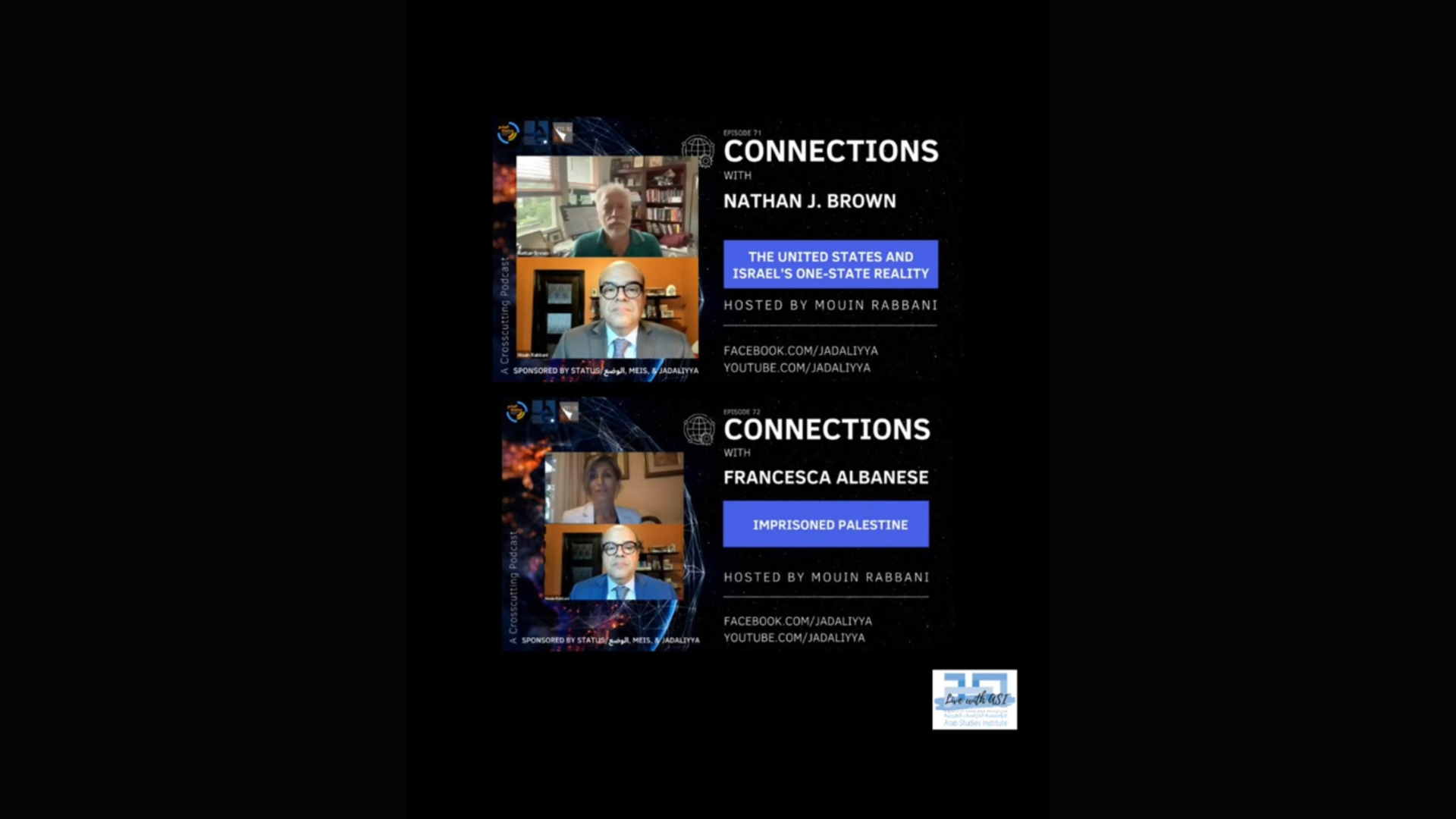
Mouin Rabbani also spoke about the recent episodes of Connections Podcast, featuring interviews with Nathan J. Brown and Francesca Albanese.
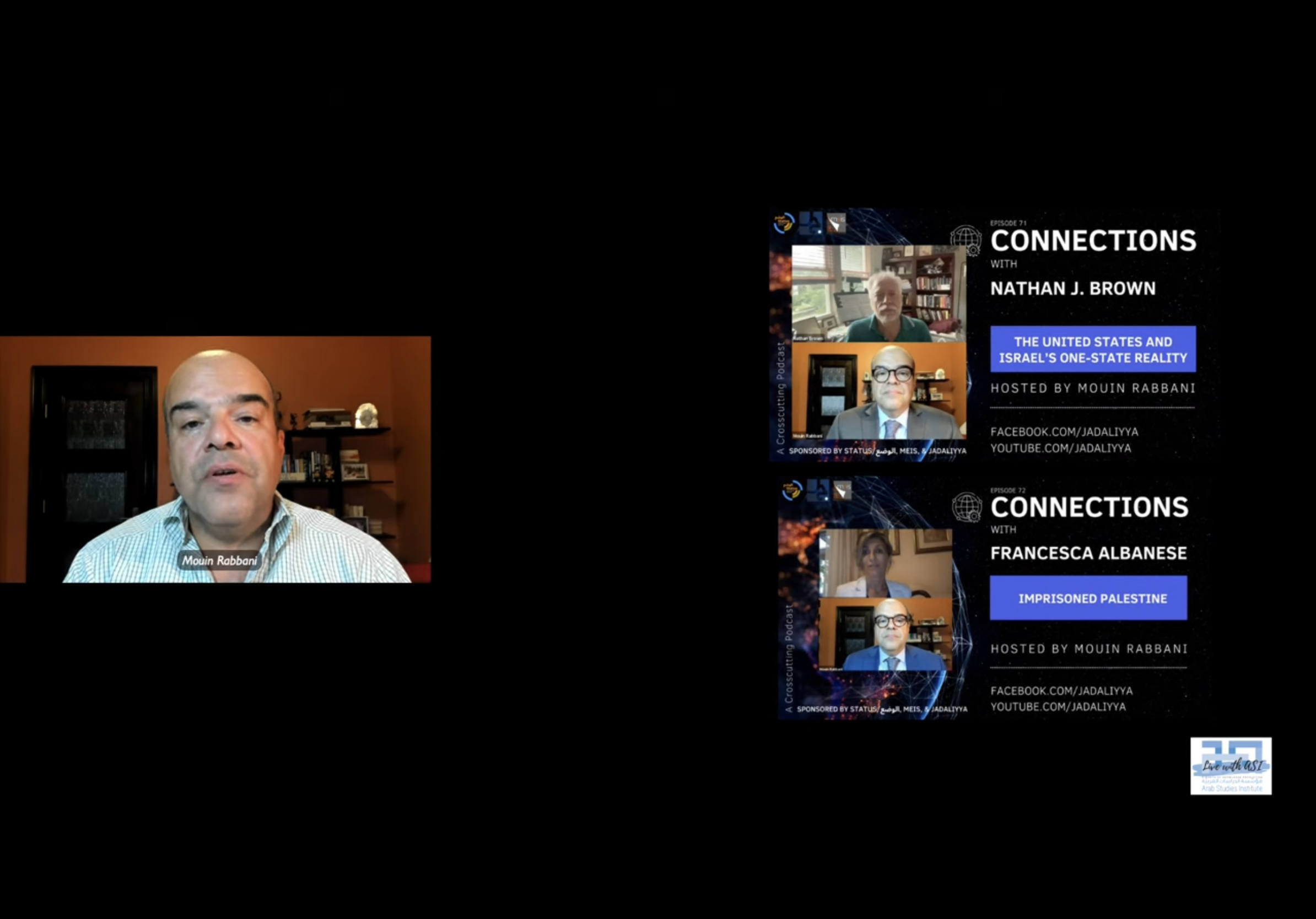
Mouin Rabbani discusses two recent episodes of Connections Podcast on LWA
- Connections Episode 71: The United States and Israel’s One-State Reality with Nathan J. Brown
- Connections Episode 72: Imprisoned Palestine with Francesca Albanese
Roundtable on Fandom and Politics
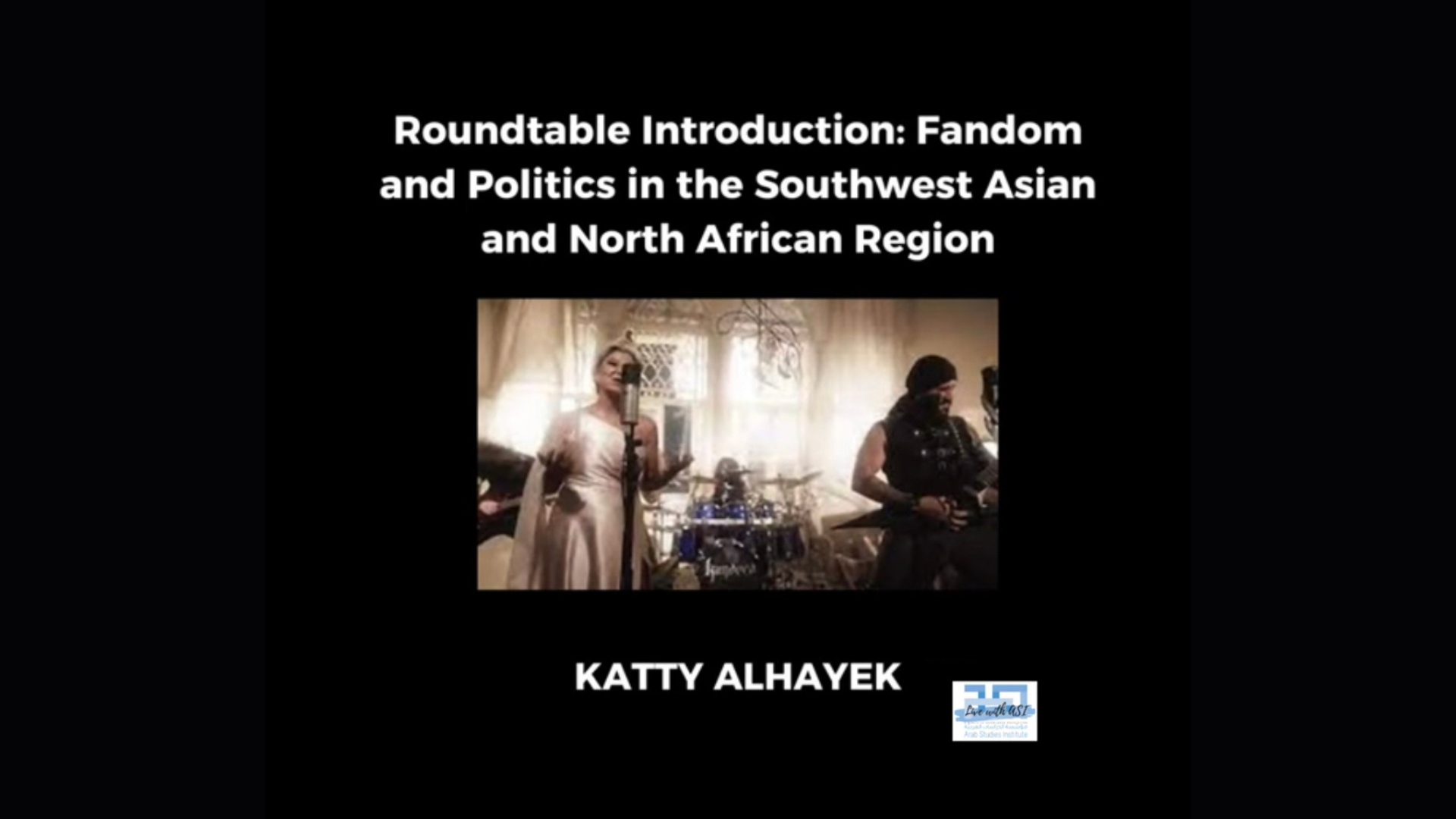
Syria Page co-editor Katty Alhayek joined the broadcast to discuss the new Jadaliyya roundtable she organized around the subject of fandom and politics in the SWANA region.

Katty Alhayek discusses the proccess of compiling articles for this roundtable on fandoms.
Grooming and Gaslighting in Egypt’s New Republic
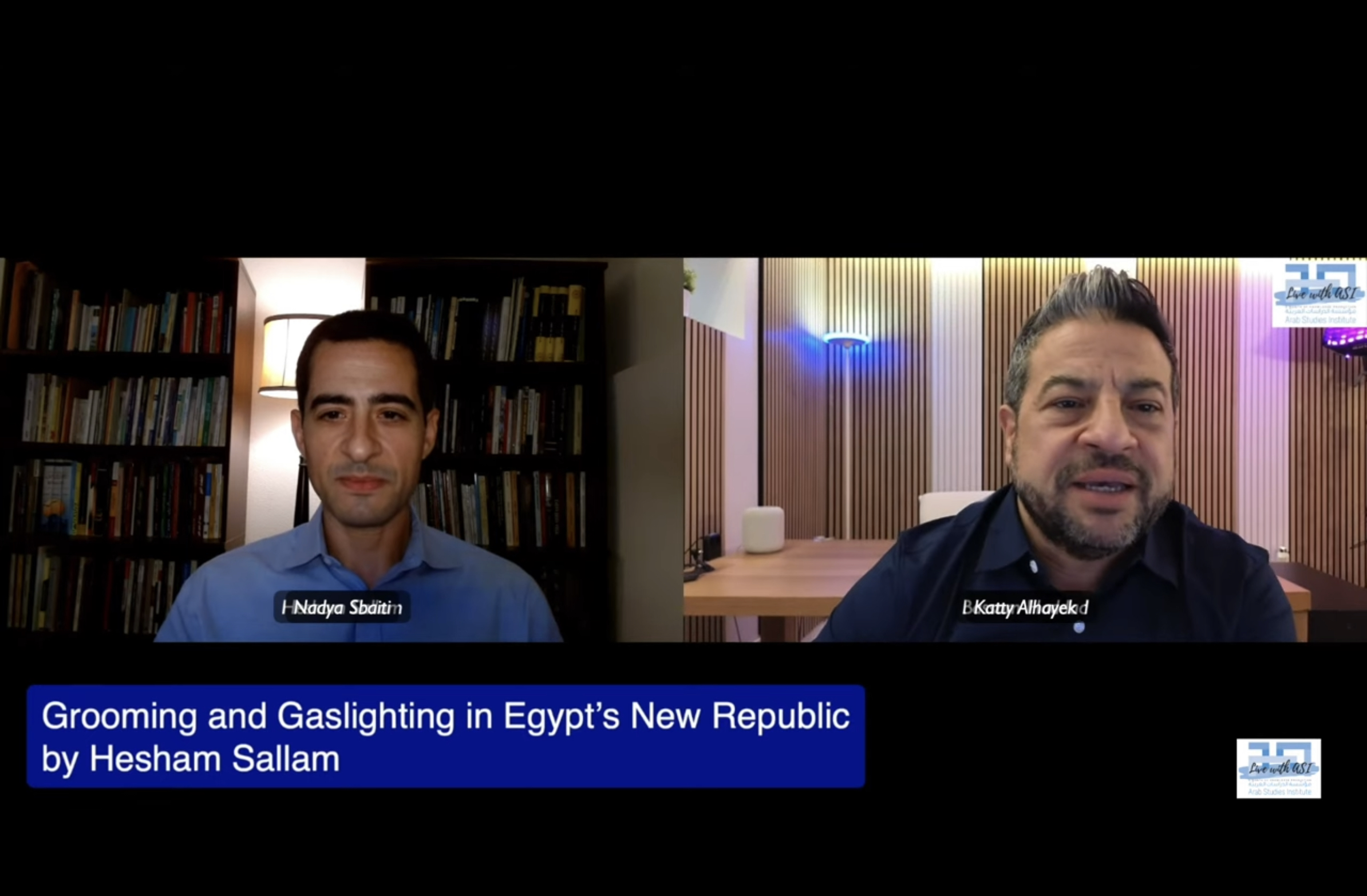
Egypt Page co-editor Hesham Sallam joined the broadcast to discuss his newly published two-part article for Jadaliyya, "Grooming and Gaslighting in Egypt’s New Republic", contextualizing Abdel-Fattah Al-Sisi recent propoganda campaign.
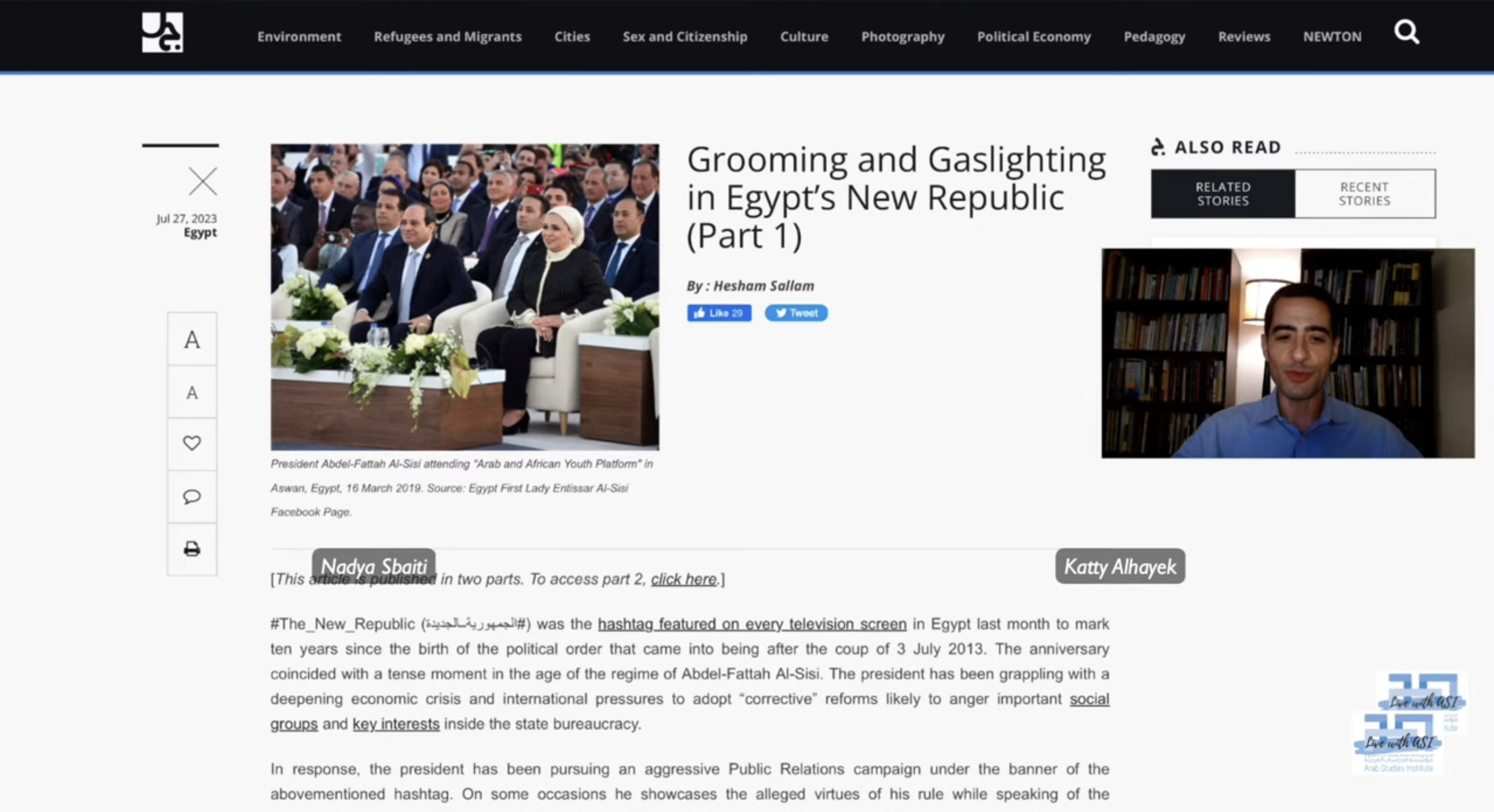
Hesham Sallam discusses his new two-part article on Sisi's Egypt, which comes around the 10th anniversary of the 2013 military coup.
- Grooming and Gaslighting in Egypt’s New Republic (Part 1)
- Grooming and Gaslighting in Egypt’s New Republic (Part 2)
Remembering Al-Gedari
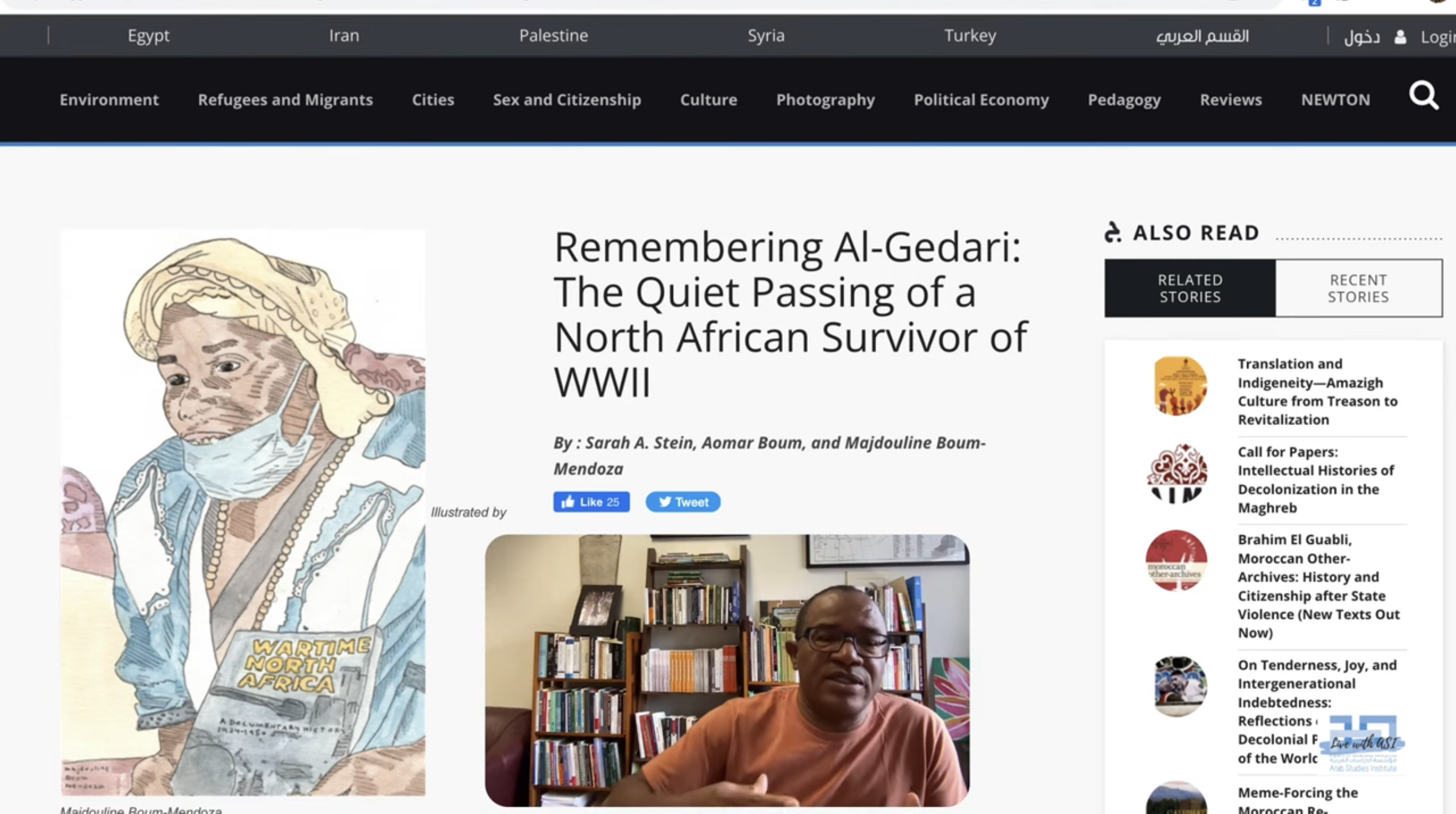
Aomar Boum joined the broadcast to discuss the new article he co-wrote, "Remembering Al-Gedari: The Quiet Passing of a North African Survivor of WWII", a piece inspired from his book, Wartime North Africa: A Documentary History, 1934-1950.
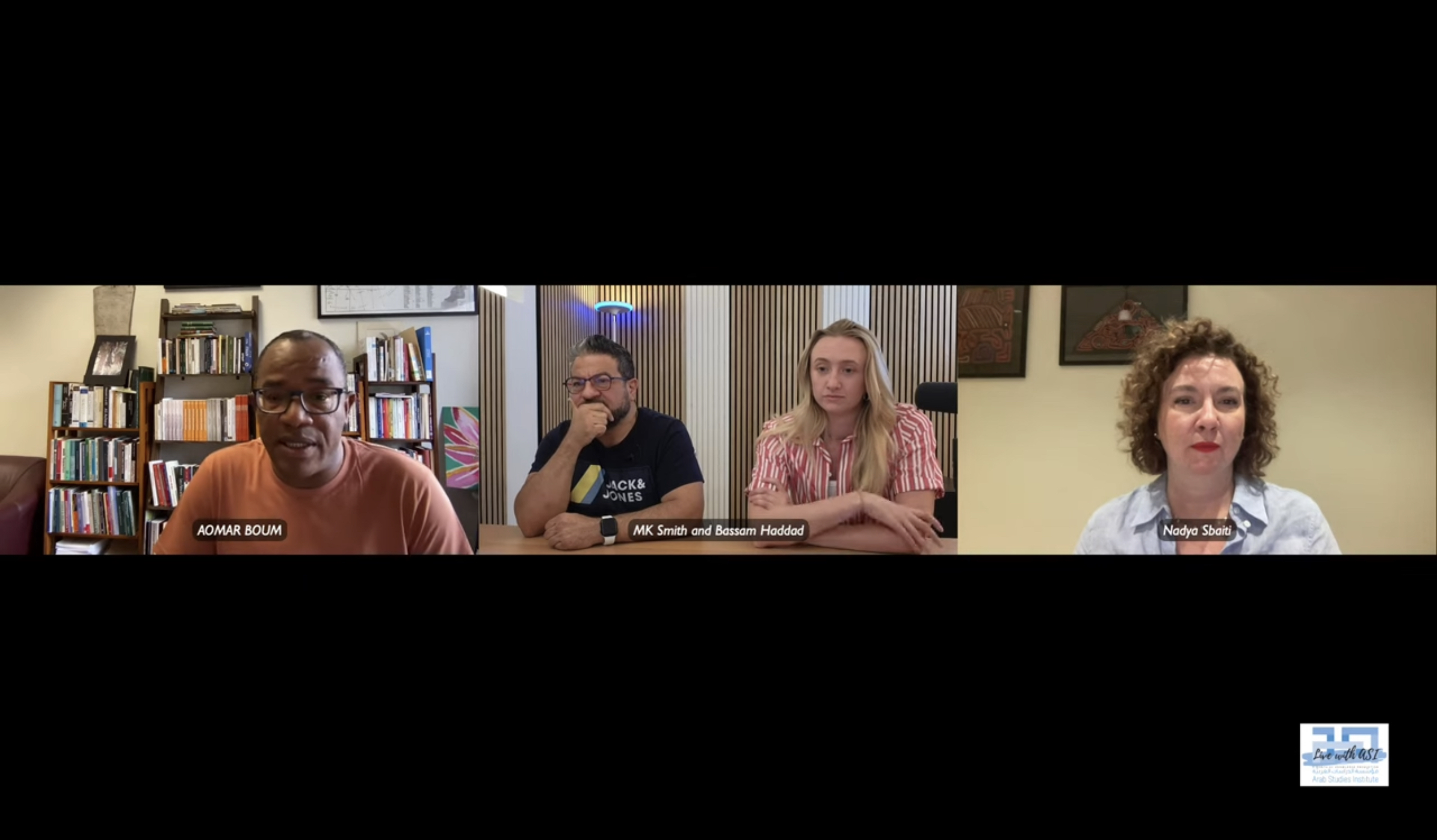
Aomar Boum shares details behind the proccess by which this article and his book came to be.
- Remembering Al-Gedari: The Quiet Passing of a North African Survivor of WWII
- Wartime North Africa: A Documentary History, 1934-1950
10th Anniversary of the Gezi Uprising
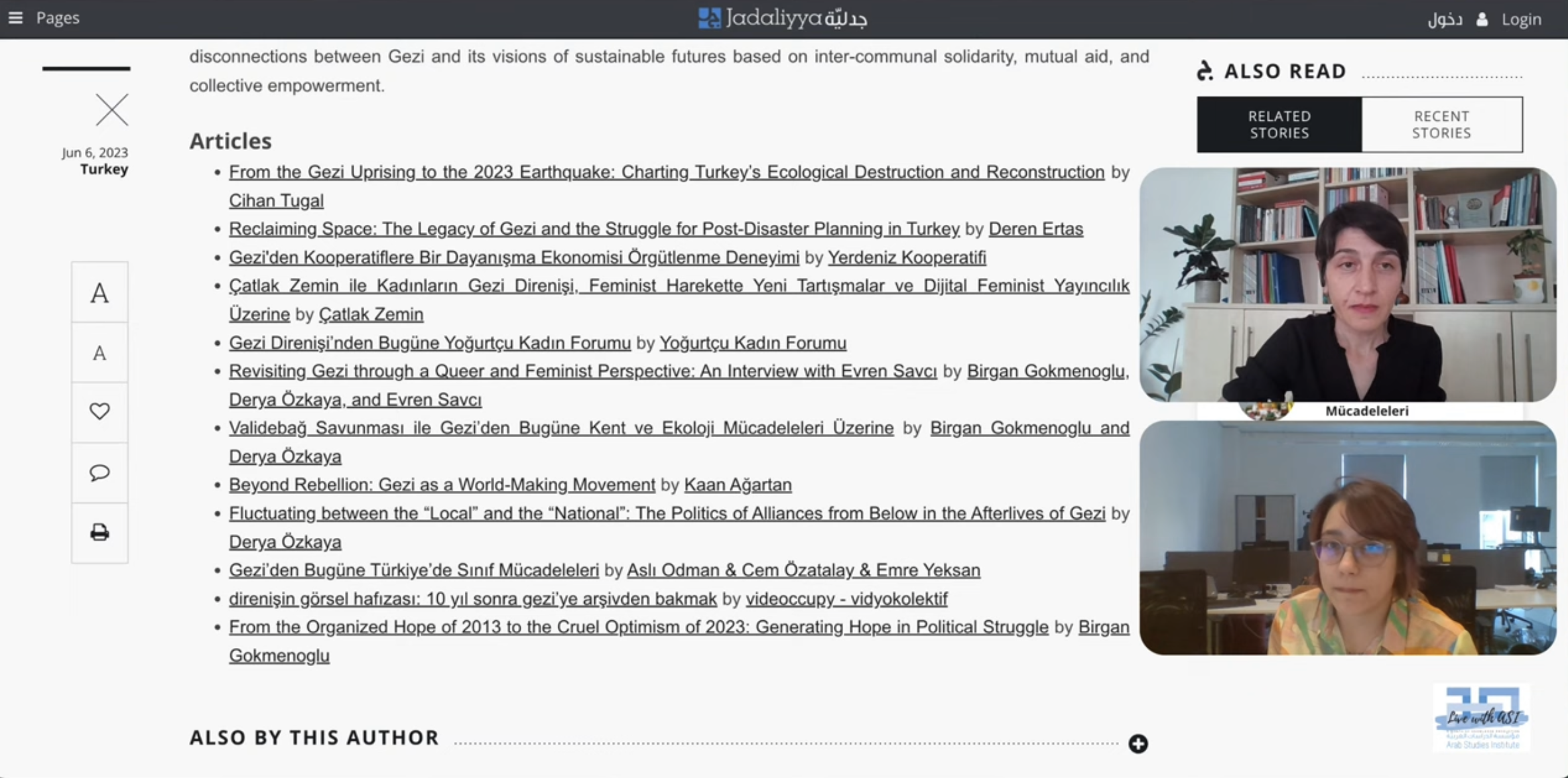
Derya Özkaya and Birgan Gokmenoglu joined the broadcast to discuss the recent dossier of articles published by the Turkey Page commemorating the 10th anniversary of the Gezi Uprising.
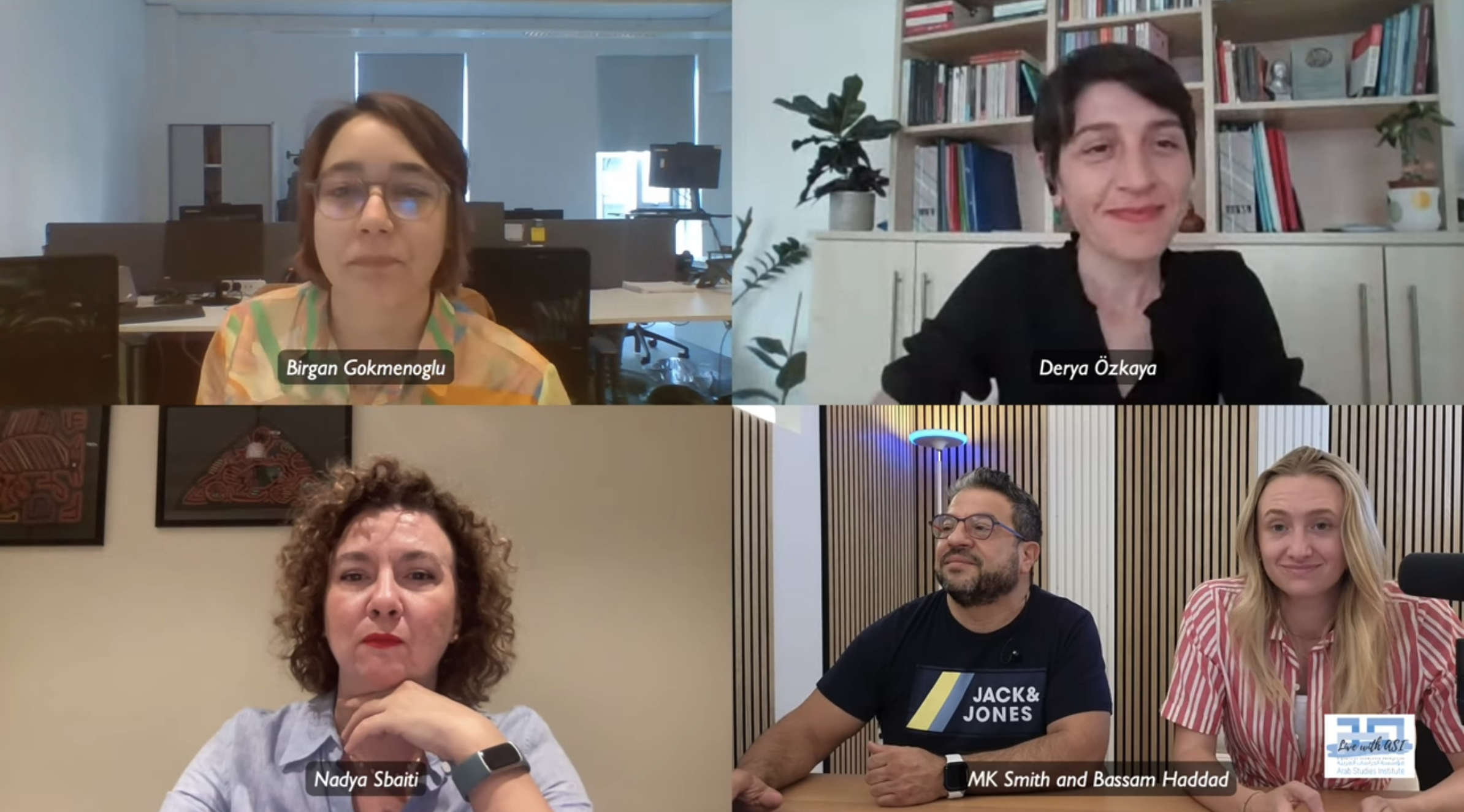
Derya Özkaya and Birgan Gokmenoglu talk about organizing this roundtable and the after-effects of the Gezi Uprising ten years on.
NEWTON
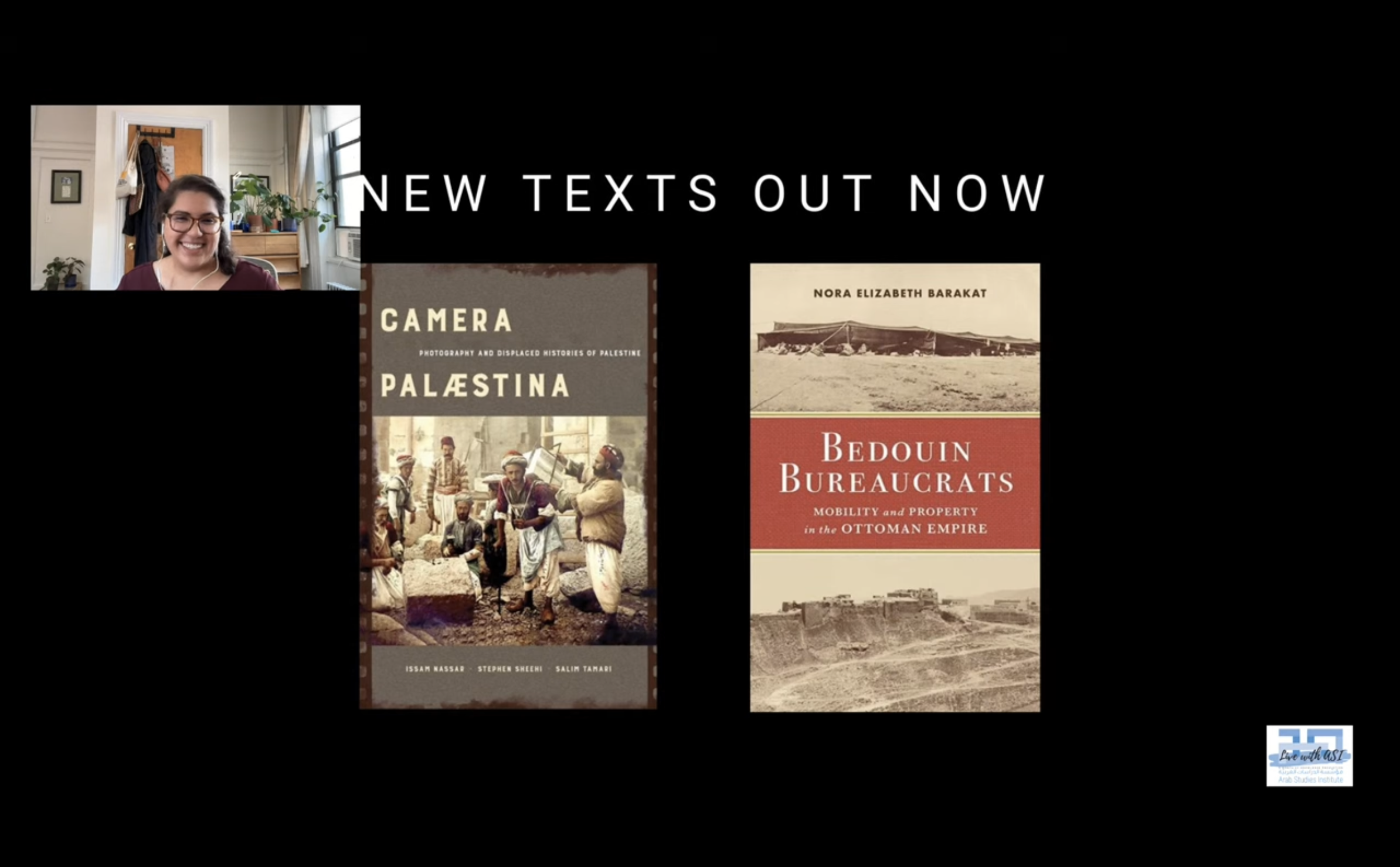
MESPI managing editor Mekarem Eljamal joined the broadcast to discuss a variety of new texts which have been featured in our New Texts OUt Now (NEWTON) series.
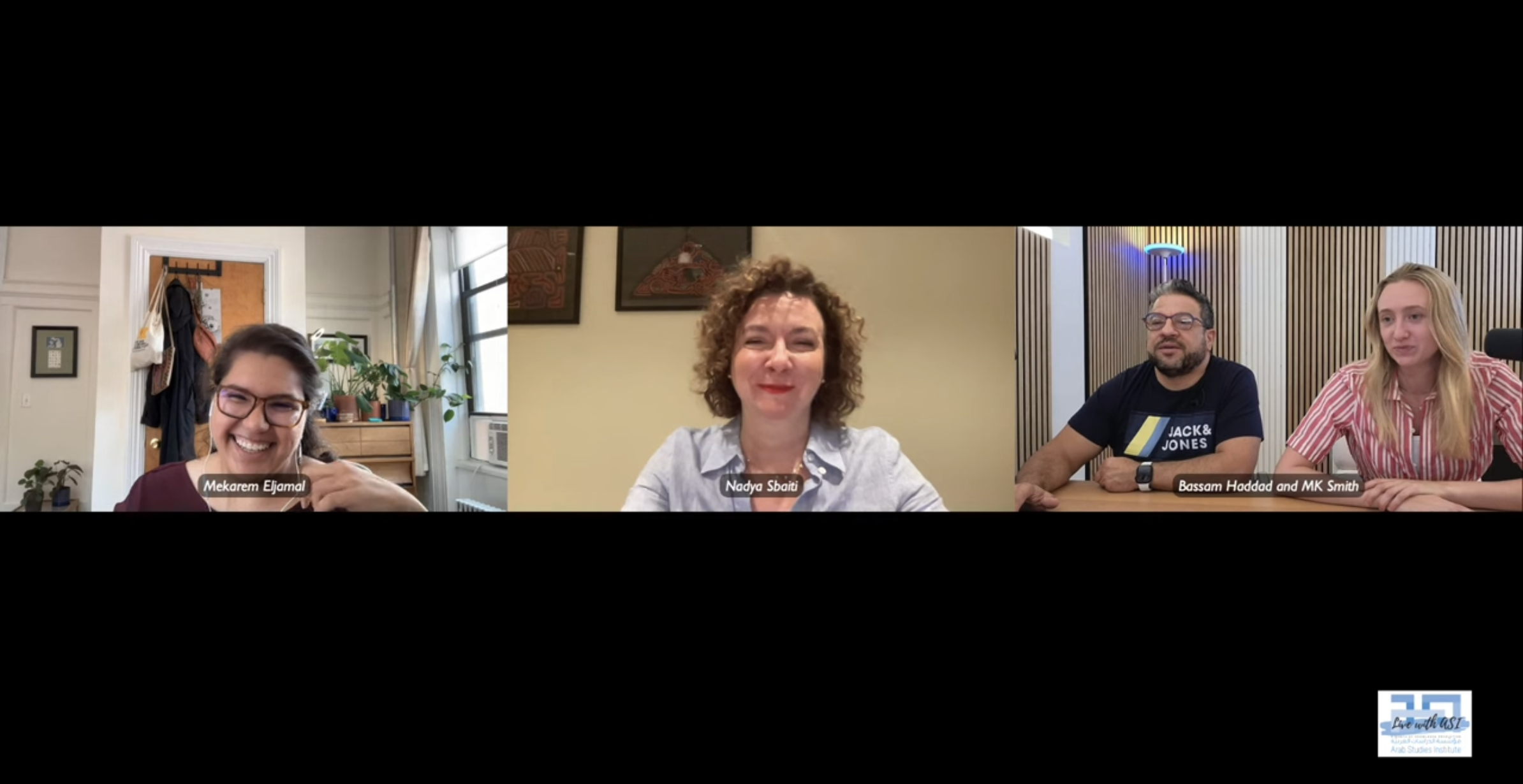 Mekarem Eljamal joins LWA to share a series of new books featured in NEWTON.
Mekarem Eljamal joins LWA to share a series of new books featured in NEWTON.
- Issam Nassar, Stephen Sheehi, and Salim Tamari, Camera Palaestina: Photography and Displaced Histories of Palestine (New Texts Out Now)
- Nora Elizabeth Barakat, Bedouin Bureaucrats: Mobility and Property in the Ottoman Empire (New Texts Out Now)
Jadaliyya
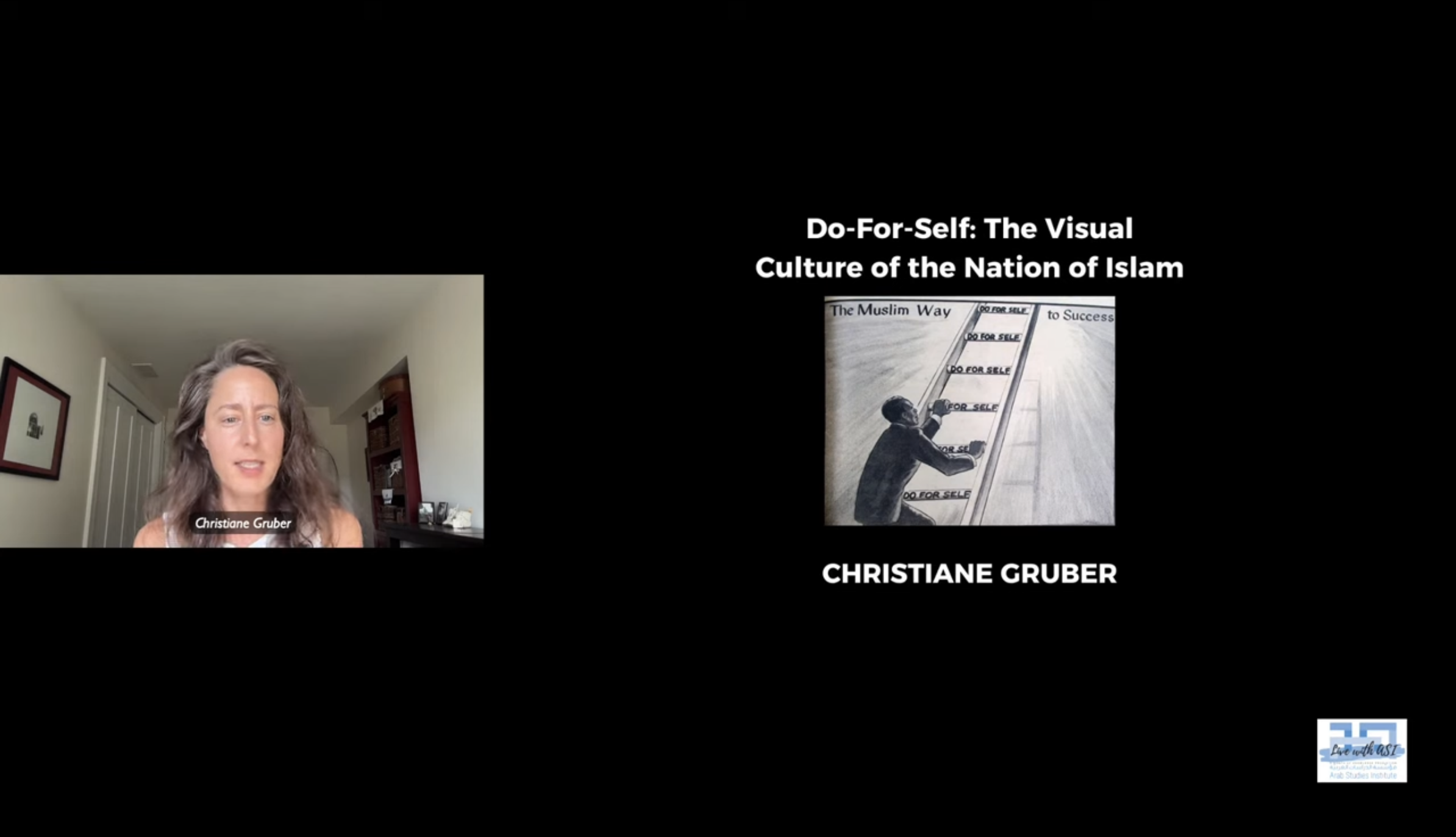
Christiane Gruber joined the broadcast to discuss her new article, "Do-For-the-Self: The Visual Culture of the Nation of Islam".

Anna Younes joined the broadcast to discuss her new article, "Settler Coloniality is Coming Home to Roost in Europe: Antisemitism, Palestine, and the Right to Protest".
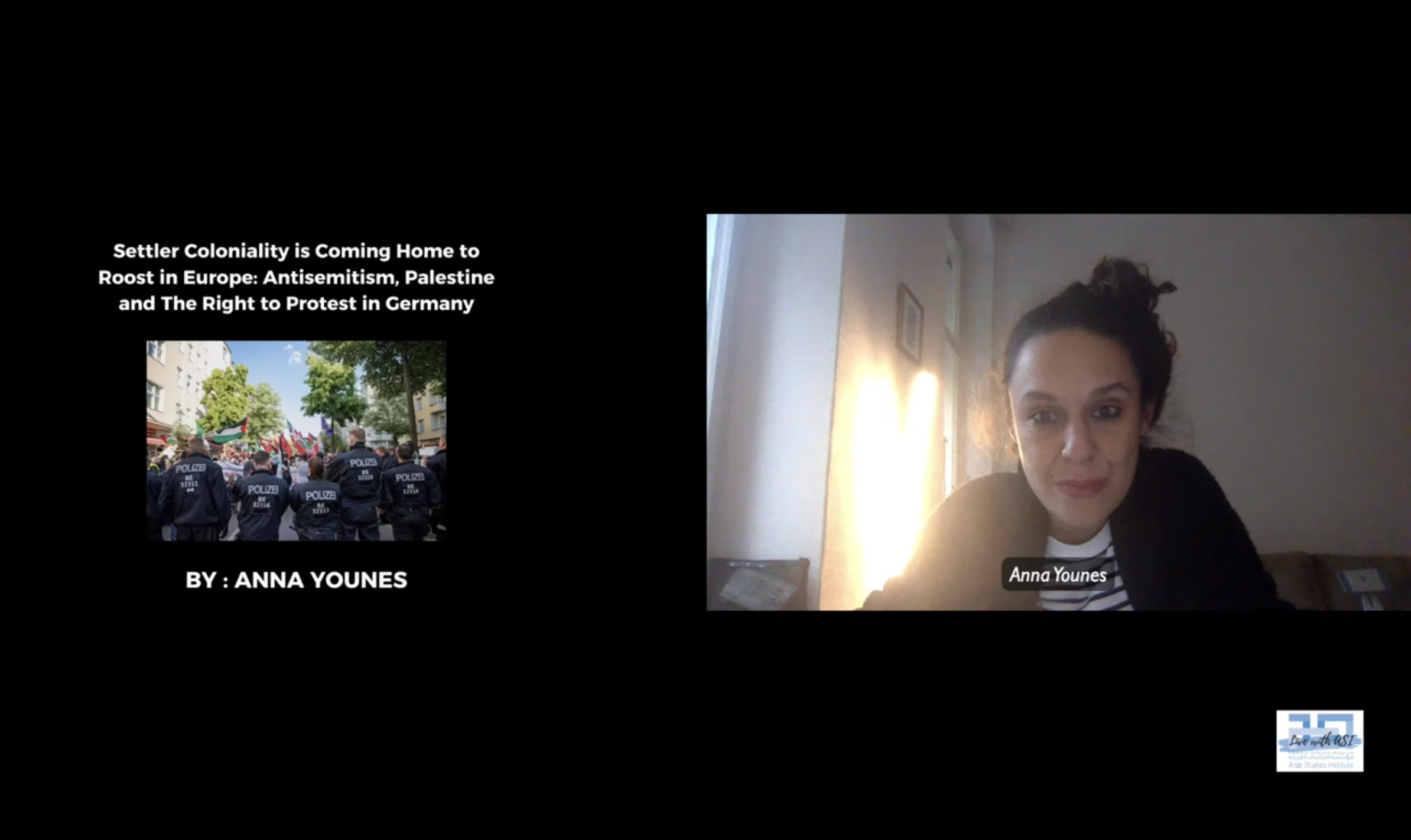
Jadaliyya assistant managing editor John Jamil Kallas joined the broadcast to discuss three standout articles that have been published over the summer.
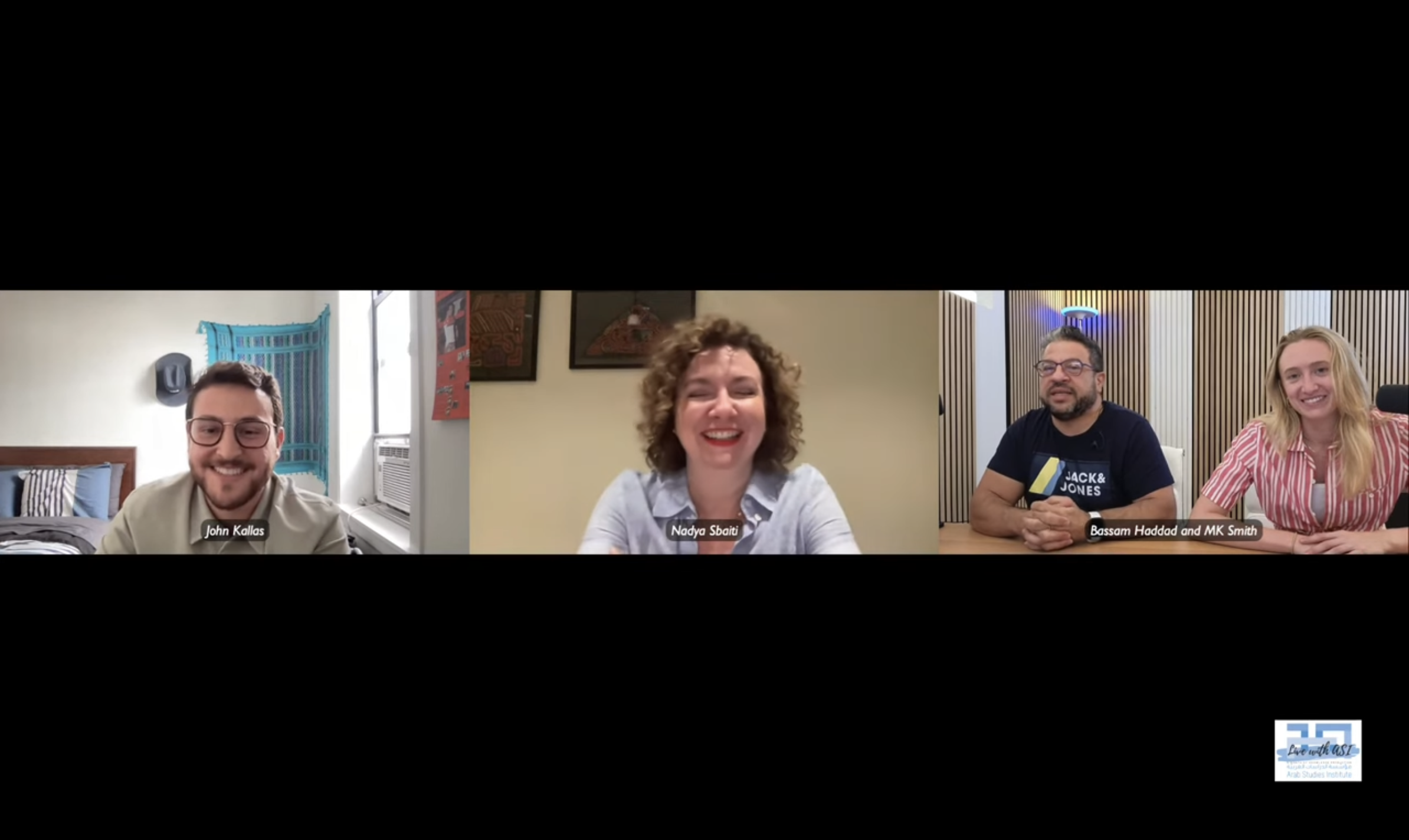
- Marxist MPs in the New Turkish Parliament Aim to Bring in Workers’ Voices: Interview with Sevda Karaca (Part 1)
- Marxist MPs in the New Turkish Parliament Aim to Bring in Workers’ Voices: Interview with İskender Bayhan (Part 2)
- Oom-Shmoom: Israel’s Battle against the United Nations
- Bill Clinton Lied—And So Did Everyone Else: A Mystery Solved in the Israel-Palestine Conflict